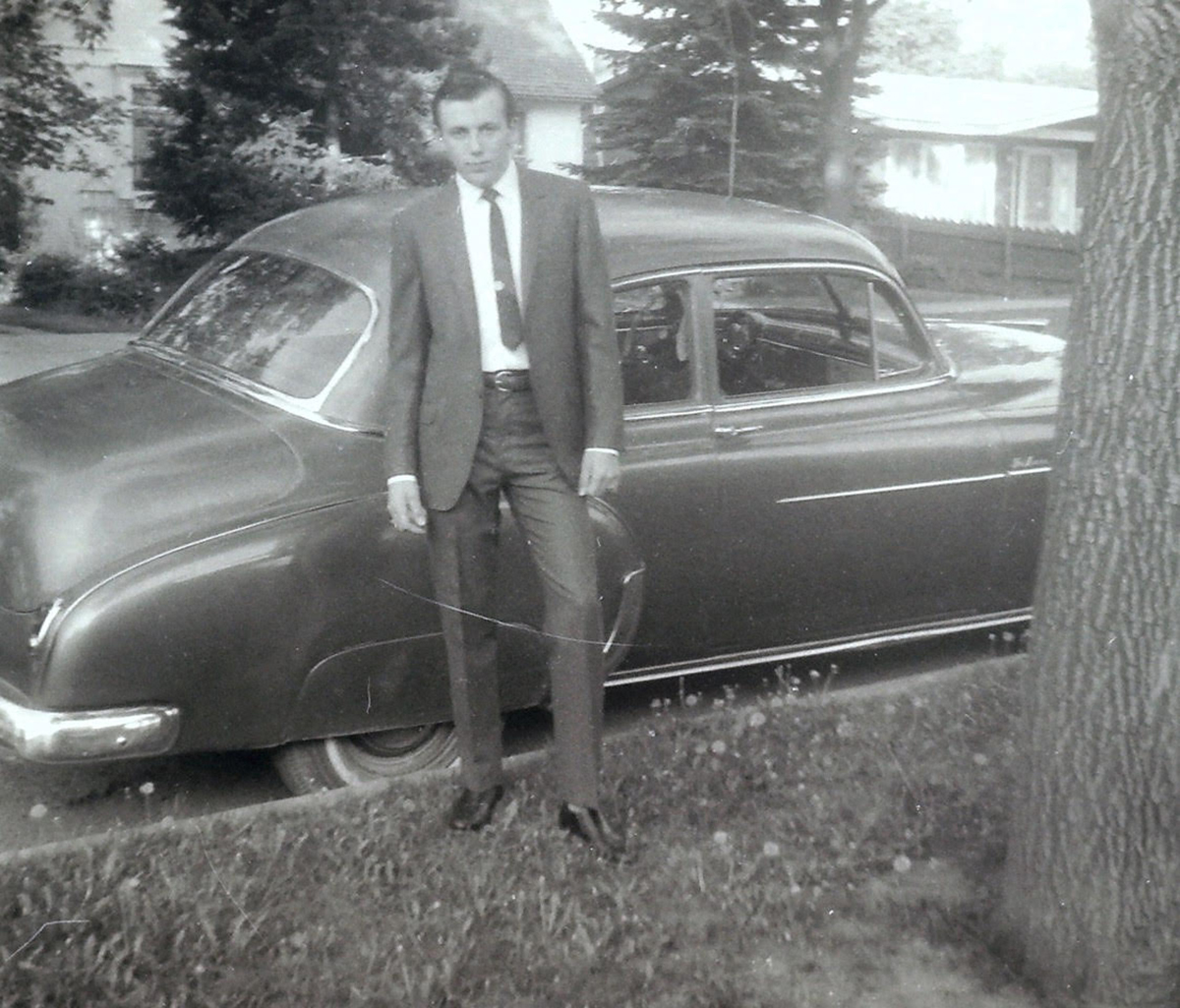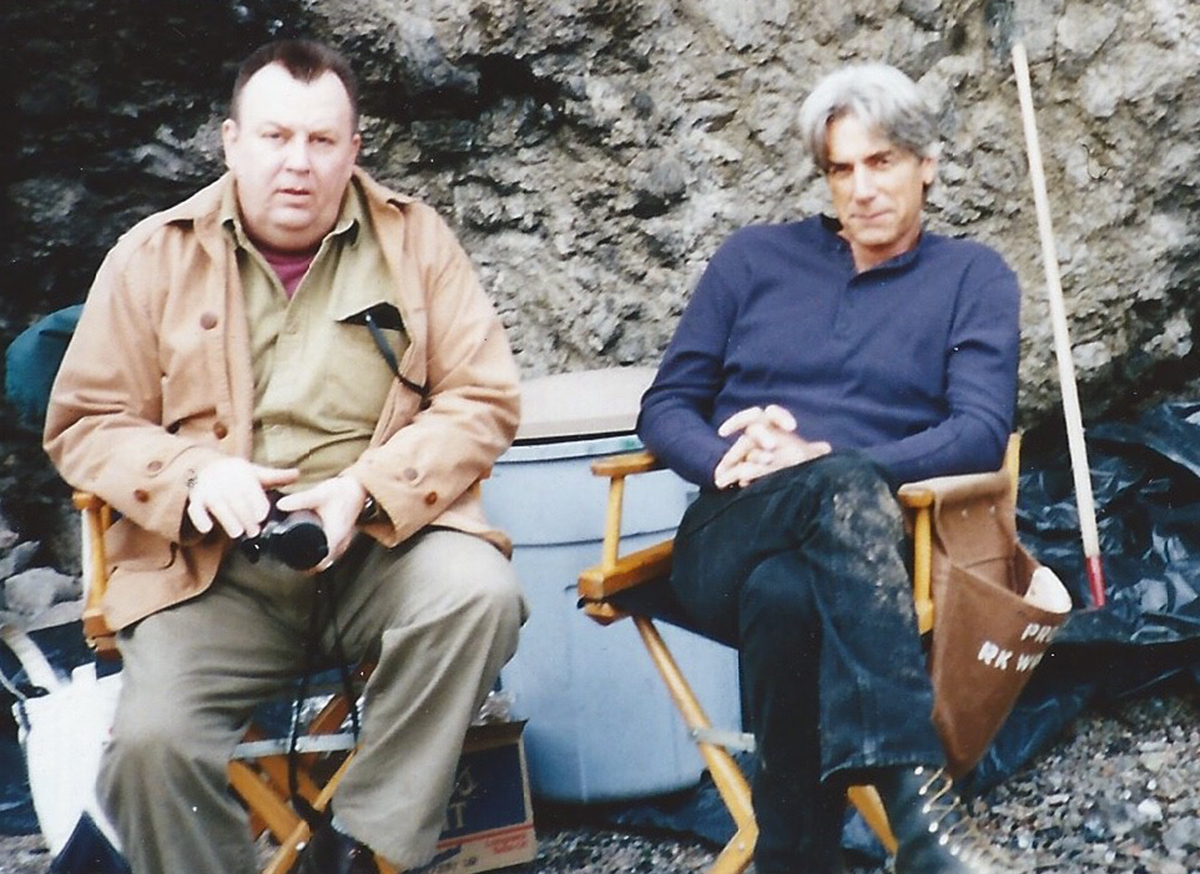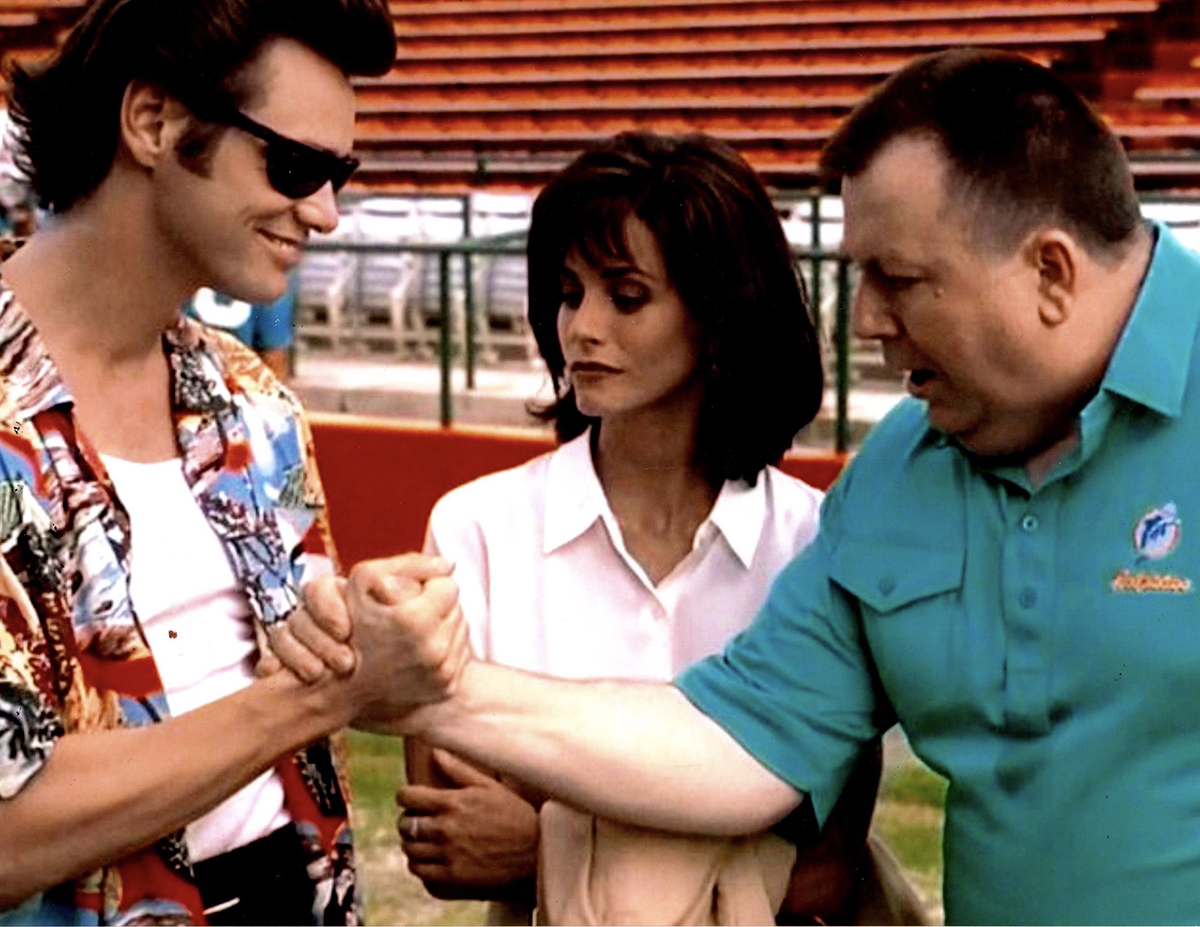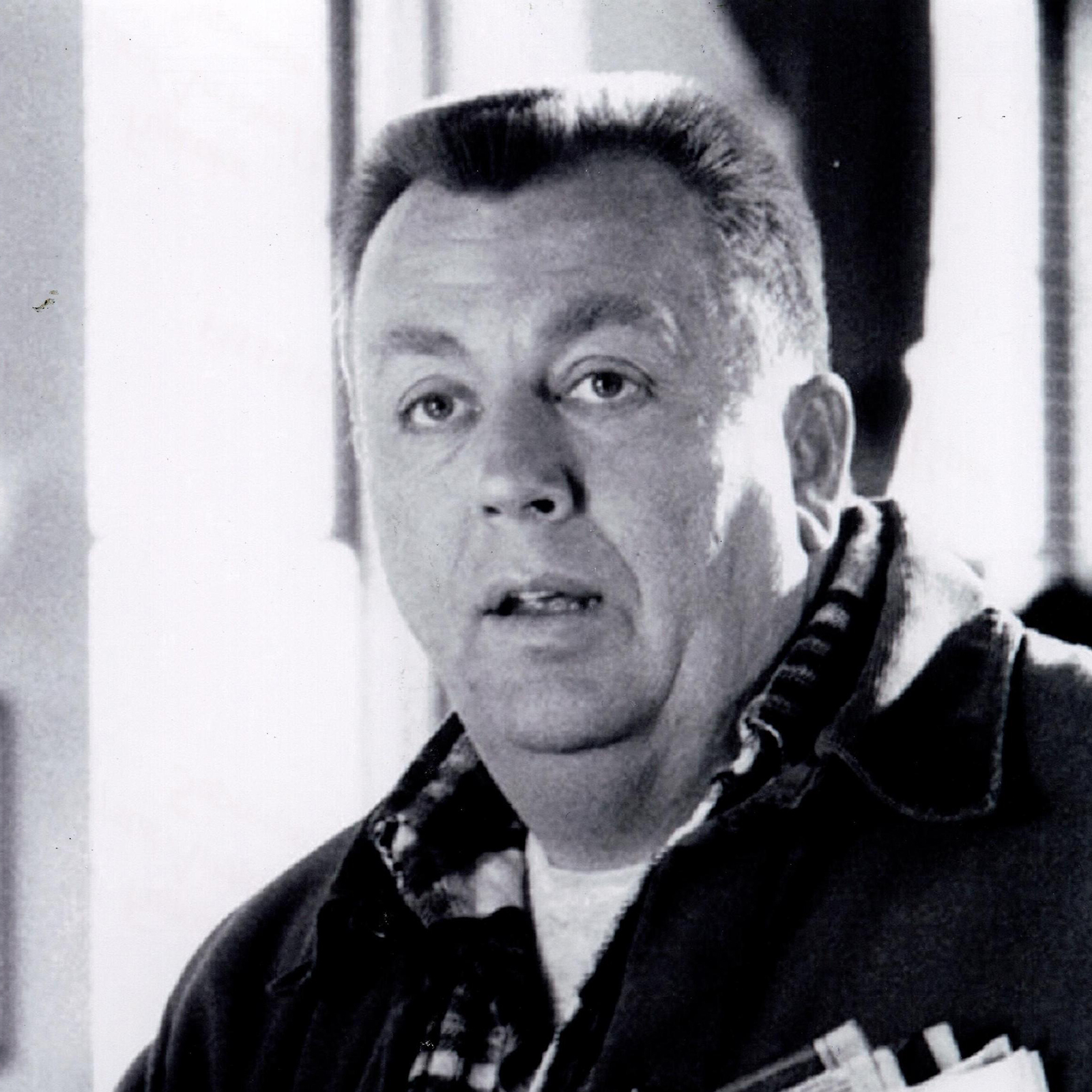Troy Evans sat in his cold, compact cell at Montana State Prison mulling his future. Sentenced to 40 years for assault, he had heaps of free time to ponder.
Growing up, he had been a middle-class kid who aspired to become a politician. Decades later, he was now a Vietnam veteran-turned-bar owner-turned-convicted felon ensnared by steel bars, maximum-security cells and courtyards manned at gunpoint, filling his time by writing love letters on behalf of his illiterate cellmate.
Where to go from here?
“There I was, sitting in my prison cell one day,” Evans, who grew up in Kalispell, recalled over the summer from his Los Angeles home. “I’d been in Deer Lodge about six months. I knew that I was never going to be governor of Montana or the president now. The military wasn’t in my future. I couldn’t own a bar any longer, or be a teacher, or be a lawyer. So I started assessing my options. Where else could a lunatic drunk go?”
The answer, he decided, was Hollywood.
“Nobody minds if an actor has a felony conviction,” he said. “So, I ended up in a profession where it doesn’t hurt to be a little nuts.”
Against the longest of odds, the desperate prison plan proved fruitful. Today, with an acting resume that features more than 50 films — including “Ace Ventura: Pet Detective,” “Fear and Loathing in Las Vegas” and “Demolition Man” — and at least 400 episodes of television to his credit, the former “lunatic drunk” is now a successful character-actor.

From Montana to Vietnam
Evans was born in Missoula in 1948. His grandfather, also named Troy Evans, was a state senator from Silver Bow County who served as state boxing commissioner for a couple decades. His father, Leo Bruce Evans, was a World War II fighter pilot who flew more than 30 missions in a North American P-51 Mustang with the 78th Attack Squadron over Japan, including the initial air raid at the Battle of Iwo Jima.
“He was a real, 100 percent war hero, and when he came back he used the G.I. Bill to launch a business selling and repairing office equipment,” Evans said.
The Evans family lived in Ramsay, 10 miles west of Butte, and Missoula before moving to Kalispell when Evans was in first grade, their family swelling to nine children along the way. The Evanses owned a Tasty Freeze on South Main Street in Kalispell and later changed the name to Leo’s Lazy Lion, which remained a popular drive-in hamburger stand for years.
Evans’ initial love in life was politics. At age 8, he plotted a linear equation of steps that would lead him to become president of the United States. He still had that dream in mind when he graduated from Flathead County High School in 1966 and, later, when he enrolled in classes at the University of Montana. But his trajectory changed dramatically after he was drafted by the U.S. Army in December 1967 and shipped to Vietnam in May 1968 for duty with the 25th Infantry Division.
“I idolized my grandfather and my dad, who were both Republicans, and since they were interested in politics, I was interested in politics,” Evans said. “I watched the 1956 Republican National Convention at 8 years old and formed a plan to be the first person in my family to go to college, become an attorney, a state legislator, a governor, a senator, and then to sit in the White House.”
After he spent a year crouching in the din, darkness and death of the Vietnamese jungles, however, politics now seemed like a morbid game of deception.

Introduction to Acting and a Life-Altering Night
The Troy Evans who returned to Montana in the summer of 1969 was markedly different than the one who had departed for the jungles of Southeast Asia. Fueled by a gut-churning sense of rage, the troubled 21-year-old drank and fought incessantly and cussed venom at his neighbors.
“I was pretty much out of my freakin’ mind and mostly unaware of it,” he said.
His first job as a reintegrating civilian was at First National Bank in Kalispell, promoting Mastercard charge card accounts.
“The old farmers just kept asking, ‘Why wouldn’t I just use my own money to buy things?’” Evans said. “The bank president was my girlfriend’s father and he hated my guts because he didn’t want me to marry his daughter. We broke up, and I lasted about seven more minutes after that.”
One Saturday afternoon in 1970, while enrolled in classes at Flathead Valley Community College, Evans was “fairly drunk” and standing on Main Street in Kalispell when he was approached by a mustachioed man wearing a white pinstripe suit and a straw sailor hat, with a cigarette flopping in the corner of his mouth. It was Ron Danko, a professor in the English department who was starting a theater and seeking recruits to perform in “The Odd Couple.”
“He was not getting an adequate turnout, so he went out on the street and was looking for actors,” Evans remembers. “I said, ‘I appreciate it, but I’m not an actor.’”
Danko told him he already had a “real actor” but was looking for a “slob” — his Oscar for “The Odd Couple.”
Evans accepted the part, a wise decision that would have sterling repercussions down the line.
In the summer of 1970, Evans and a friend converted a large three-story building, formerly an icehouse and more recently a shuttered John Deere dealership, into a diverse if unlikely entertainment hub with a dance hall, bar, art gallery, repertory theater, roller-skating rink, flea market and commons area.
“The walls were three feet thick and filled with sawdust,” Evans says.
His next business venture was leasing property near Sykes Diner and opening The Powder Keg bar on July 1, 1971, the day the drinking age was lowered to 18.
“The Powder Keg bar was a riot,” he says. “There was no other place close to hear rock and roll for a 100-mile radius. If I hadn’t been such a raging alcoholic, there still would be a thriving business there today. It was a dramatic time — Northwest Montana in the ’70s … It was a fantastic, riotous couple of years before I crashed and burned.”
Tavern owner wasn’t the smartest profession to pursue for the self-described “obstreperous alcoholic,” a volatile combination that came to a head one evening when he addressed a dispute between two patrons by violently attacking the instigator, an assault that left the man with broken legs.
“The move was a U.S. Army heel stomp,” he said. “I dragged him out and threw him into the street.”
The man turned out to be an attorney. Instead of the “stern lecture and $75 fine” he received after previous bad behavior, this time the “stakes were way higher.”

Sentenced to Montana State Prison
After his arrest, Evans committed himself to a VA mental hospital in Sheridan, Wyoming, for 90 days. Sober and hopeful, he and his attorneys believed he would now elude a lengthy prison sentence and be granted another slap-on-the-wrist lease on life.
“I thought that I had beaten the system,” Evans says. “I thought that the time at the VA hospital would show me in a better light and that it would be a six-year suspended sentence.”
The judge, however, sentenced him to 40 years at Montana State Prison, with six years suspended. Evans believes the unusually stiff sentence may have been rooted in personal vendetta: the judge had unsuccessfully run for political office in Silver Bow County three times, each time losing to Evans’ grandfather.
“It was years before I had learned of the connection that (the judge) had had to my family,” Evans said. “The legal system acknowledged that I had gotten screwed. In retrospect, whether he had an ulterior motive or not, he actually saved my life. If the sentence had been suspended, even though I’d been to rehab, I might have gone three or four months and then figured that I could have a beer, and the whole ride would have started all over again. After sending me down to the license plate factory, I decided that I was never going to put myself in the position again where this could happen to me — and that I would never have another drink.”

Taking Advantage of Second Chances
Bothered by the circumstances of his sentence, the sentencing commission at Montana State Prison kicked Evans loose after two years behind the immense gray sandstone walls in Deer Lodge.
Upon his release in the fall of 1975, Evans enrolled in theater classes at Montana State University. He then followed an ex-girlfriend — the Kalispell banker’s daughter — to Berkeley, California, and later drifted to Santa Maria, where he found a summer job working for a community theater company. As it happened, Ron Danko had moved from the Flathead Valley to Salinas, California, and was operating a theater there. Danko encouraged Evans to accept an assignment in the summer of 1976 from a well-respected director in Santa Maria named Donovan Marley. Evans agreed, and worked his way into the local and regional theater scene.
“My entire career has flowed out of that,” Evans says.
In 1980, Evans signed with an agent and, one year later, was selected for a minuscule part on the television series “Lou Grant.”
“I went on the set of Lou Grant for one day and I had that little scene where I go into the convenience store and I get murdered,” he said. “And it was a great experience, except for that I was murdered in the episode. As an actor on a TV series, you never want to be killed.”
A few years later, Evans landed a role on “China Beach,” which he said was “directly from the connection to the theater in Santa Maria.” That later led to his casting as a desk clerk named Frank Martin on the hit “ER,” appearing in 129 episodes.

Success as a Character-Actor
Indeed, Troy Evans has built a vast résumé playing bus drivers, farmers, gunners, military teachers, scoutmasters and, in the most ironic of niches, deputies, sheriffs and police sergeants in a broad array of TV programs and films. He even got a brush with politics by playing a Montana congressman in the HBO series “Veep,” and he points out that his role as a Vietnam veteran in “China Beach” was notable.
“Seldom will you see a veteran working on a military show,” he said. “When I think about the huge numbers of shows — from 400 TV episodes and between 50 and 60 movies — considering that I was 29 when I started, that’s pretty shocking.”
Evans might not be an A-list celebrity, but his face is familiar to millions: as Roger Podacter in “Ace Ventura: Pet Detective;” the basketball coach in “Teen Wolf;” Sheriff Perry in “The Frighteners;” and the tough-talking cop in Sylvester Stallone’s science-fiction “Demolition Man,” to name a few. Evans currently portrays a homicide detective nicknamed “Barrel” on the Amazon series “Bosch.”
“I’ve been asked over the years, ‘How do you pick your parts?’” he says. “My answer is simple: ‘If they will hire me to do it, that’s the part that I pick.’ It is like a tumbled ball in Bingo: whatever square that’s called out and I land on, that’s what I’m doing to do. And I have enjoyed it all.”
